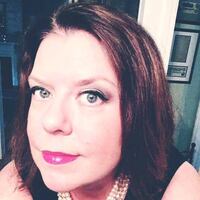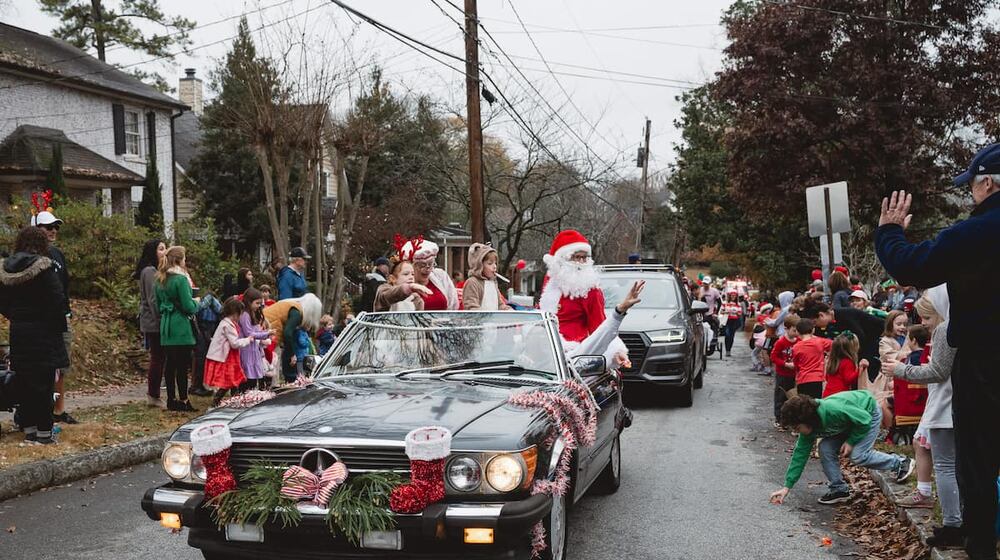The tough guy waded into the sea of pink. He accepted a T-shirt but declined the feather boa. “A man’s got his limits, “ joked Eric Dunlap of Stone Mountain before an end-of-season Atlanta Braves game where breast cancer survivors were honored.
Dunlap and one other man were the only two fellows among the crowd of hundreds of women, but they marched proudly onto the field before the first pitch to release pink balloons with everyone else.
“Being a man does not keep you immune,” Dunlap said.
October is Breast Cancer Awareness Month. It’s a pinktastic time of ribbons, sequins and charitably minded menu items like the Go Pink shake at Flip Burger Boutique or the “pinktini” cocktails at Shula’s 347 Grill in Buckhead, where a portion of proceeds is donated to research organizations. Merchandise meant to raise funds and awareness, like the Estée Lauder “Pink Ribbon” powder compact, are heavy on the bling, and events like the annual Pink Ribbons luncheon and fashion show held earlier this month at the Buckhead Ritz-Carlton can resemble sorority reunions.
“Anybody else having a hot flash? With the medication I’m on, my hot flashes are having hot flashes,” quipped keynote speaker Kaedy Kiely, the midday host on 97.1 the River and a breast cancer survivor. There were a few men there, including event founder Dr. Sheldon Lincenberg, and a handful of male models who braved a ballroom full of hooting women as they strolled the catwalk.
It’s not surprising, male survivors say, that men may feel a bit left out of the pink parade.
“Men don’t have breasts — at least we think we don’t — so we can’t get breast cancer. But guess what, yes we can,” said Ralph Bell of west Cobb County. He happened to rub his chest one day in 2004 and felt something strange. Within days he’d had a mammogram, then a lumpectomy and finally a left-side mastectomy.
Laid off from a job in the health care industry shortly before his diagnosis, Bell has since earned master’s and doctorate degrees in Biblical counseling from Covington Theological Seminary. He and his wife, Gerri, are past co-chairs of the survivor committee of Cobb County Relay for Life and he volunteers with the American Cancer Society, often talking to other men who have been diagnosed.
“I do not turn down an opportunity to speak,” said Bell, who said it took the organization a month to locate a male survivor he could talk to when he was diagnosed. “It is critically important for men to understand that we do get breast cancer.”
To be sure, breast cancer affects far more women than men.
“Male breast cancer is rare, making up less than 1 percent of breast cancers,” said Elissa McCrary, regional communications and marketing director for the American Cancer Society’s South Atlantic Division. In 2011, the American Cancer Society expects 230,480 new cases of breast cancer to be diagnosed in women, and about 1,970 cases in men in the United States.
But long odds are no guarantee, Dunlap said.
“I speak at a lot of different events,” he said. “I really try to make people aware it could happen.”
A mortgage department manager for Wells Fargo, he shares his story on his website, dunlapspeaks.com.
“I know how isolated I felt,” said Dunlap, an 11-year survivor. “I was like, I am not going to a woman’s support group. Everything is always pink!”
At a pregame reception the Braves hosted for survivors, though, he was happy to put on his pink T-shirt. “I hate to ruin my tough street exterior,” he said with a chuckle.
His mother and grandmother both had breast cancer, but he never dreamed he would be next. He went to the doctor after experiencing sharp chest pains following a workout. The diagnosis stunned him.
“I said, ‘Are you sure?’ ” Dunlap said. The only other male breast cancer survivor he’d heard of was actor Richard Roundtree, best known for his title role in the “Shaft” movies. Dunlap’s sons, Jordan, 15, and Christopher, 12, kept him motivated throughout treatment.
“I kept looking at their faces,” said Dunlap, who was also concerned about the burden his wife, Felecia, faced with two children and a cancer patient to care for. “It made me want to hurry up and get well. I was afraid that if I didn’t do what I needed to do, I might not be here for them.”
Dan Hardy of Covington was the other man walking onto Turner Field that day. Like Dunlap, he was shocked by his diagnosis in 2003.
“I was driving a tractor trailer for a company,” he said. “I reached over to grab something, and the arm rest bumped me. I got home and the area seemed red and swollen.”
The diagnosis that followed seemed unthinkable.
“I had no idea, being a guy,” he said. He was accompanied at the pregame event by his wife of 38 years, also a survivor. Following his diagnosis and surgery in 2003, Judy Hardy became more vigilant about self-exams and discovered a lump in 2006. The couple have attended the annual Braves breast cancer event for four years. The first two years, organizers mistakenly thought Dan Hardy was there just as Judy’s escort, rather than a fellow survivor.
“You’re tempted to lift your shirt and show them,” he said. He and his wife each had a single mastectomy.
“We didn’t know a whole lot about [breast cancer] until he was diagnosed. After that it made me more aware,” Judy Hardy said. “We joke that because his was on the right and mine was on the left, if you stand us side by side, we’re a perfect set.”





